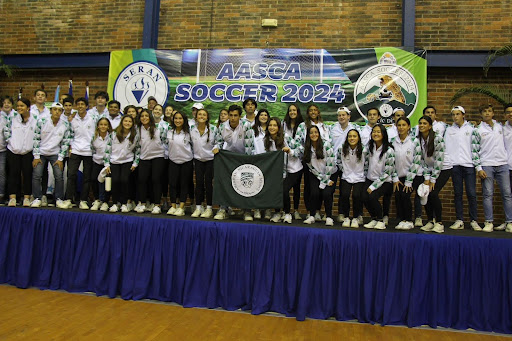Play about child labor written by Thelma Lanuza Sanint.
Introduction
The play, “I Have No Choice” is about a poor family in South Sudan who find themselves forced to put their eldest son into work at an early age. He experiences many difficulties in this job but he does not complain since he does it to survive. However, the truths are always revealed and there are people of values in the world. We learn that just as there are cruel people, there are also compassionate people.
Theme: Child labor (cruelty and compassion)
Creative Title: I Have No Choice
Characters:
MOTHER: Hardworking and brave woman
FRANCISCO: Son of strong character.
Two baby sons: Juan and Felipe
JOHN: American man of values, educated and who always wants to do good.
Pablo: Owner of the cloth factory.
SCENE I
(At home the mother talks with her son to make a plan to solve her financial problems.)
MOM: — John, I have to tell you the truth. I don’t know how much longer I can put bread on the table. I do my best but I alone am not enough.
FRANCISCO: — Mom, we live in difficult times and I understand perfectly, yesterday a man came to offer me a job at a cloth factory, if you want I can take the job even though the salary is low.
MOM: — It could be temporary, we are in desperate times. I promise you it will only be this week, while I get a higher paying job for less time.
MOTHER: — Don’t worry, me and your brother will take care of it.
FRANCISCO: — It’s okay mother, don’t worry, I’ll go wash the dishes and then I’ll go to sleep to get ready for work early tomorrow.
SCENE II
(Francisco shows up for work and is roughed up by Pablo.)
PABLO: — Hello boy, how are you, I knew you would take this job since it is a great opportunity.
FRANCISCO: — Yes, thank you, where do I start?
PAUL: — Come with me.
FRANCISCO: — And this road because they are so isolated.
PABLO: — The fabric you will be embroidering is better quality in the climate of this more isolated area.
FRANCIS: — Oh yeah.
PABLO: — Look, there are some things you should know before you enter the factory, we are strict, we like work, the time you are here is to work, it is not to play and you don’t come to meet other people either. You come to work and that’s it. There is only one rule, work, if you don’t follow it there are consequences.
FRANCISCO: — Yes, I understand.
PABLO: — Well, come on in and we’ll start working.
FRANCISCO: — Come on, just let me refill my water bottle.
PABLO: — I told you that you only came to work! GO TO WORK NOW. NOW if I’m not going to hit you!
FRANCISCO: — You’re crazy, what are you going to hit me, what’s wrong with you, only my mother can do that, you don’t have the right to touch me!
PABLO: — COME CHILD you deserve it!
FRANCISCO: — OK, WELL, don’t hit me anymore, I’m going to work!
PABLO: — Shut up and go to work.
SCENE III
(Francisco returns home after a long day.)
MOTHER: — Good afternoon son, it’s late, you should rest, you look tired.
FRANCISCO: — Okay, I’ll eat something and go to sleep.
MOTHER: — I made you a sandwich, here. Tell me how it went at work.
FRANCISCO: — Well, I’m tired but we need the money.
MOTHER: — Thanks son, it will only be this week, the neighbors are already helping me find a job.
FRANCISCO: — I love you. Good night.
MOTHER: — Good evening John.
SCENE IV
(John arrives at the factory to see the fabrics and discovers the hidden truths.)
PABLO: — Boy, you’re almost late, you know there are consequences.
FRANCIS: Yes, sir.
PABLO: — Today a certain Francisco is coming to see our fabrics so please tell the others to behave well and not make noise before noon. Go, here he comes, go, run, he shouldn’t see you! HURRY KID.
JOHN: — (with an American accent) Hello, Don Pablo, how is he? It’s nice to see you here.
PABLO: — very well, thank you, if you want we will proceed to see the wonderful fabrics that we can sell you at a very good price and in good quantity.
JOHN: — Okay (Both walk towards the fabrics.)
PABLO: — Look, this is the section of the most valuable fabrics. Do you like any?
JOHN: — Emmmm I don’t know, don’t you have some that are brighter?
PABLO: — Let me look in the warehouse, I’ll be right back. (He walks down the hall to the warehouse as Francisco pulls out one of the fabrics and the door opens to the factory where the children work.)
JOHN: — Look Pablo and what’s here? (slowly opens the door)
PABLO: — NO, sir, don’t knock. (As Francisco looks at the children in amazement.)
JOHN: — BUT WHAT IS THIS! POOR CHILDREN! They look malnourished and abused. What a disappointment, Mr. PABLO! I’m bringing my lawyers this afternoon to sort this out. Children go home, I’ll take care of this. Their families will be helped and this factory will be closed.
THE END


